The allure of being your own boss, setting your own schedule, and potentially earning a higher income has captivated the imagination of many aspiring freelance writers. However, there are hidden downsides that often go unnoticed.
In this article, I’ll delve into these less-discussed challenges and drawbacks that you need to be aware of before becoming a freelance writer.
Why Freelance Writing Is So Popular
The freelance writing industry has experienced a remarkable boom. Largely thanks to the widespread availability of online platforms, content marketing, and the digital revolution.
With a plethora of opportunities available, freelance writing seems like an enticing profession. The ability to work from anywhere, take on diverse projects, and enjoy a flexible lifestyle has contributed to its widespread appeal.
Traditional employment models are gradually being replaced by the gig economy. Where freelancers can leverage their skills and expertise to secure assignments from various clients. This is evident with the rise of platforms like Fiverr and Upwork (both of which have been going strong for many years).
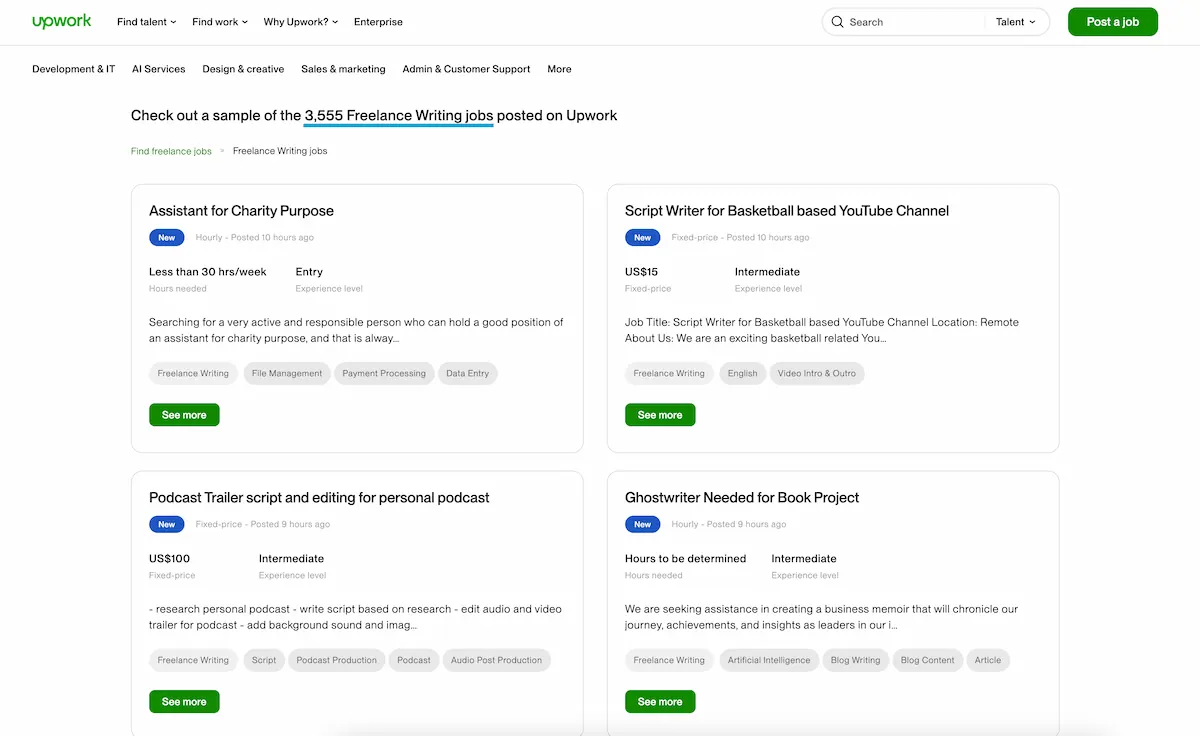
This shift has empowered many people to pursue their passion for writing. While enjoying the freedom that comes with it.
However, beneath the surface of this seemingly perfect career lies a complex reality that many aspiring freelancers overlook. The hidden downsides of freelance writing can present significant challenges that may impact your:
- Financial stability
- Work-life balance
- Overall job satisfaction
And more.
Let’s take a closer look at them.
The 5 Hidden Downsides Of Being A Freelance Writer
1. Financial Insecurity
One of the most significant challenges that freelance writers face is financial insecurity. While freelancing offers the potential for higher income, it also comes with the inherent risk of irregular cash flow. Unlike traditional employment, where a steady paycheck arrives at predictable intervals as long as you have the job, freelance writing income can be unpredictable and inconsistent.
I know, speaking from personal experience. I’ve had months where I haven’t brought in more than $100, and other months where I’ve made five figures.
It’s not uncommon to have an income graph that looks like this:
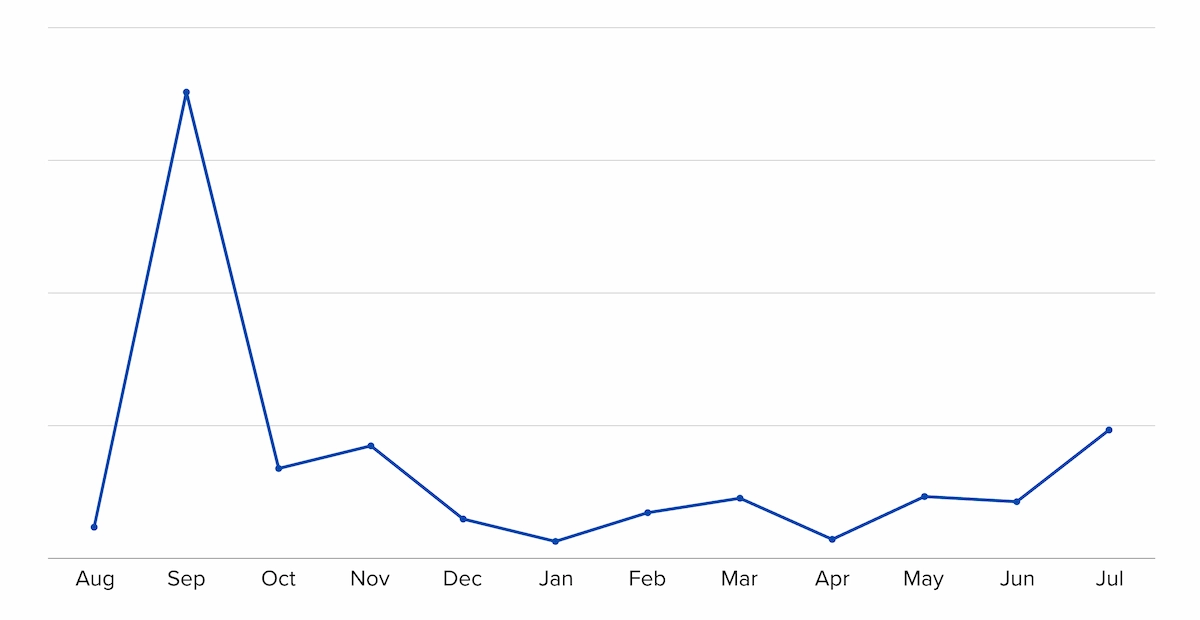
Freelancers often experience a feast-or-famine style of earnings. Sometimes you’ll have lots of high-paying clients, resulting in a comfortable income. However, there are also periods where the workload diminishes. And securing new projects becomes more challenging.
These dry spells can be financially stressful, leaving you uncertain about meeting your financial obligations and covering your basic living expenses. Which is never fun.
Payment Delays
Along with the unpredictability of income, you may also face delays in payment. For example, some clients may take longer than expected to process invoices. These delays can disrupt your cash flow and create additional financial strain. Especially if you rely on timely payments to manage your expenses.
Just managing your personal finances as a freelancer can be challenging enough. You need to diligently budget and plan for periods of lower income, which requires discipline and financial foresight.
Without a steady paycheck, it becomes crucial to set aside funds for taxes, business expenses, retirement savings, and personal emergencies.
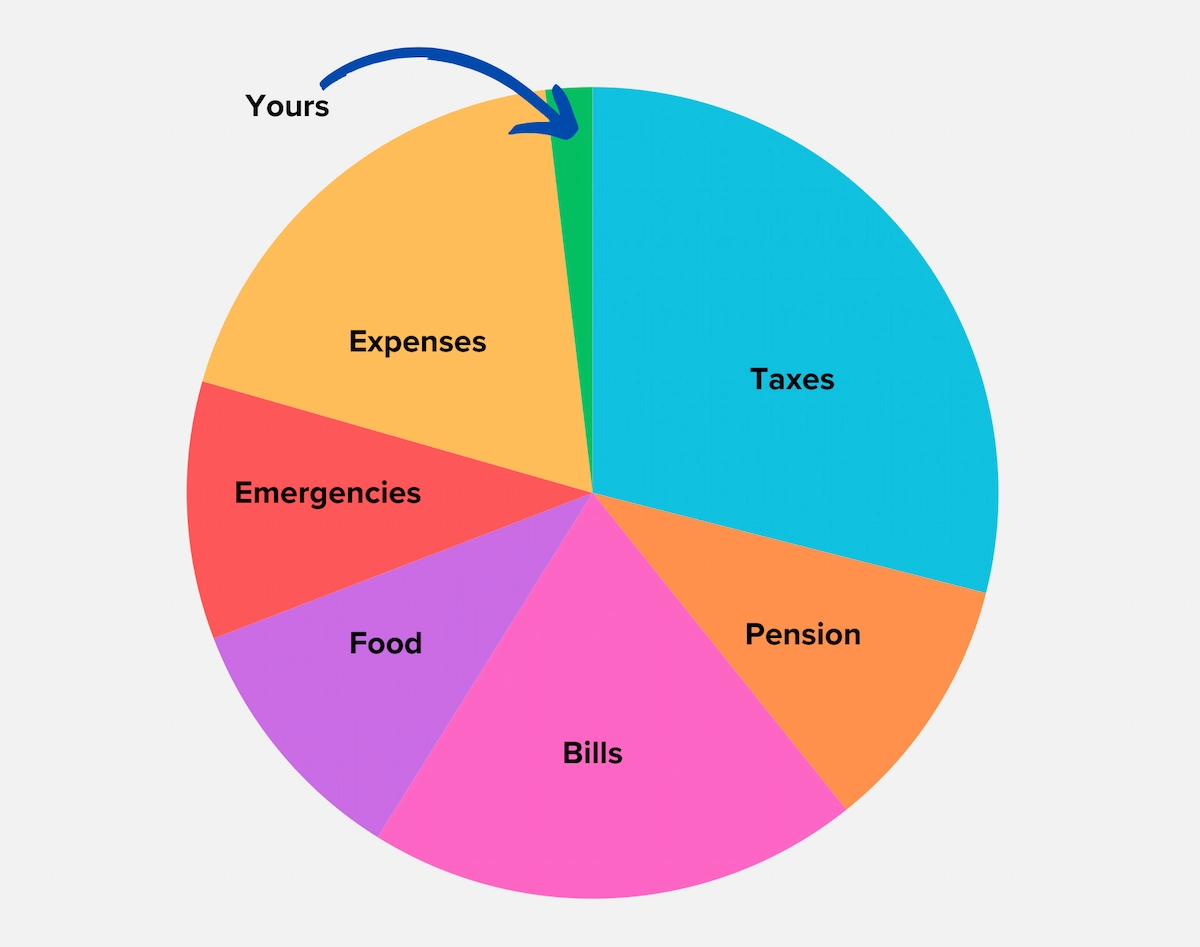
Combating This Downside
To mitigate the financial insecurity associated with freelance writing, you need to establish a solid financial plan from the start. This includes creating a budget, setting aside emergency funds, and actively seeking ways to diversify your income streams.
Building long-term client relationships can help you secure a more stable workload and minimize financial fluctuations. But nothing beats some solid financial planning.
2. Self-Management And Isolation
Freelance writing often paints a picture of total freedom and independence. However, beneath the surface lies the truth that you must possess exceptional self-discipline and self-management skills to thrive in this career path.
Without a traditional office environment or a supervisor to hold you accountable, you need to be self-motivated and proactive in managing your workload. This includes:
- Setting your own deadlines
- Establishing a productive work routine
- Staying organized to deliver quality work on time
It can be challenging to resist the temptation of procrastination. Or succumb to distractions when there are no external forces driving you to stay on track (i.e., nobody checking up on you—although some clients will do this more than others!).
The Effect Of Isolation
The nature of freelance work can also lead to isolation. While working from the comfort of your own home or a favorite coffee shop may initially seem appealing, the absence of colleagues and the lack of daily interactions can take a toll on your well-being if you’re not careful.
Collaboration, brainstorming sessions, and bouncing ideas off colleagues are often absent in the freelance writing world. Without the opportunity to engage in meaningful conversations with peers, you can miss out on valuable feedback, guidance, and professional development opportunities.
How To Beat This Issue
To combat the challenges of self-management and isolation, create a dedicated workspace and set clear boundaries between your work and your personal life. Adhering to a consistent schedule can help you stay focused and productive.
Also consider looking into professional networks, online communities, or writing groups. This can help provide a sense of camaraderie, support, and opportunities for collaboration.
For example, there are lots of Slack channels for freelancers looking for a community. Like Superpath:

And there are communities like the freelance writing subreddit:
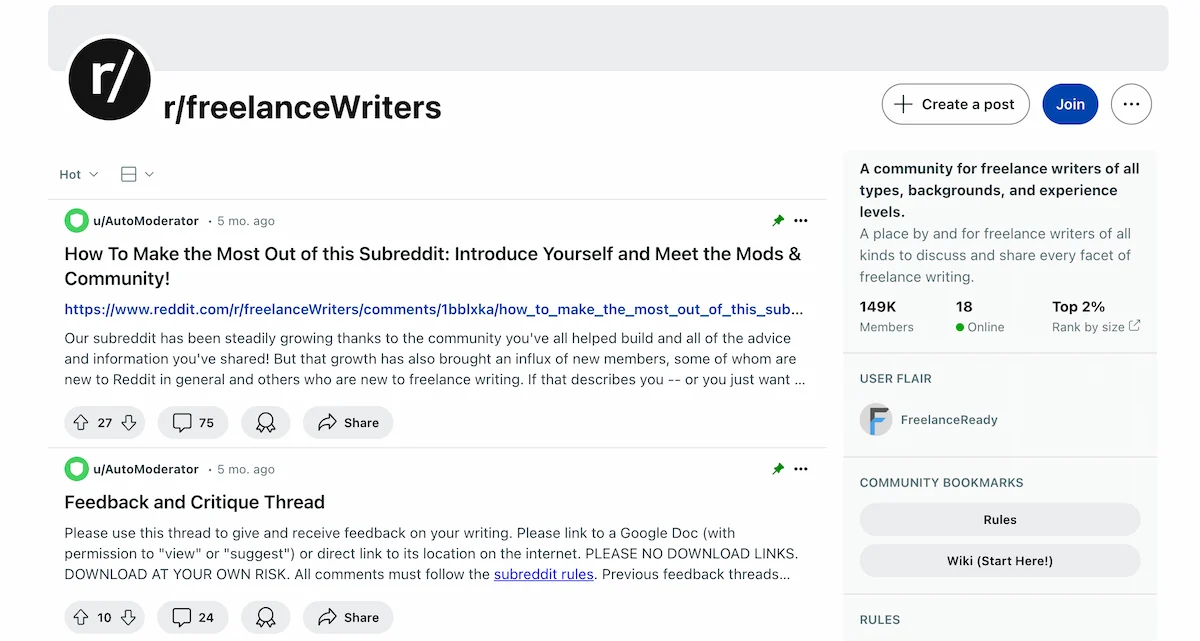
3. Uncertain Workload And Stress
One of the inherent challenges of freelance writing is the uncertain nature of the workload. You have the potential to take on diverse projects and work with various clients. But the availability of assignments can fluctuate unpredictably.
This doesn’t just affect your income (as I discussed above). As it can also affect your stress levels.
Some months may bring a surge of projects, keeping you busy and financially secure. Although taking too much on at one time can push you beyond your limits.
But there may also be periods of drought where securing new assignments becomes more challenging. And this also has implications beyond your bank account.
Stress & Anxiety
This uncertainty can lead to significant stress and anxiety. The pressure to continuously find new clients and secure projects to sustain your income can be overwhelming. You must constantly market yourself, pitch ideas, and network to ensure a steady stream of work.
The constant hustle and the need to stay competitive can be mentally and emotionally taxing for freelance writers.
Meeting deadlines can be another source of stress. Juggling multiple projects and managing client expectations can create a high-pressure environment. Missing deadlines can damage your reputation and lead to lost opportunities.
As a result, freelance writers often find themselves working long hours, sacrificing personal time, and dealing with the constant pressure to deliver quality work on time.
That doesn’t sound like the dream job it started as, does it?
Managing Your Workload
To manage the uncertain workload and associated stress, you can adopt several strategies.
First, establish a robust marketing and networking strategy. To help you maintain a steady flow of clients and projects. Building long-term client relationships and seeking recurring work can provide a level of stability amidst the fluctuations.
Time management techniques, such as setting priorities, creating schedules, and establishing realistic deadlines can also help you manage your workload effectively. And reduce stress.
Consider using a time tracking/calendar app to make it easier to stay on top of things. Like Harvest:
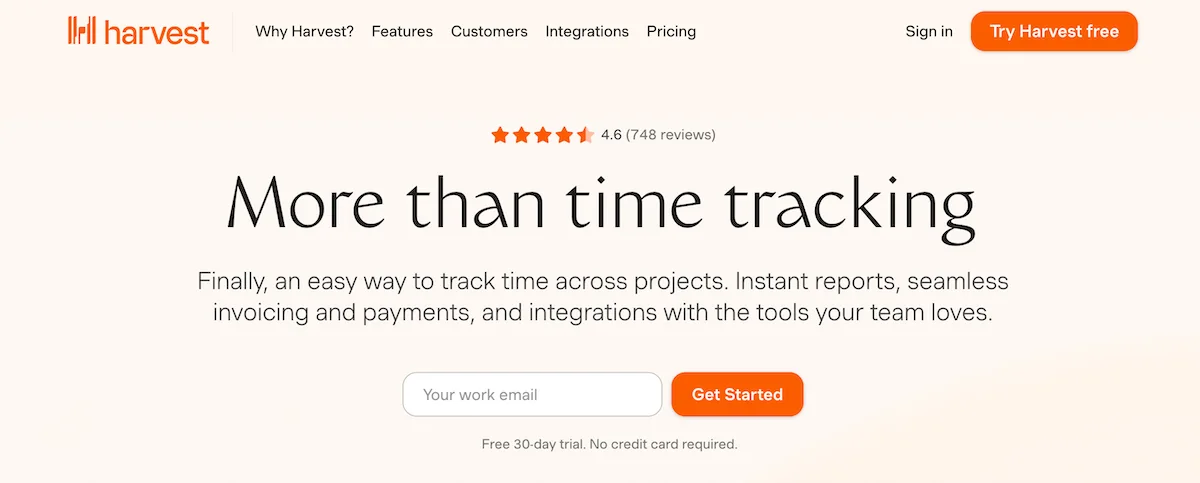
Finally, self-care is crucial for managing the stress that comes with freelance writing. Take breaks, practice mindfulness, and engage in activities outside of work to help you maintain a healthy work-life balance and prevent burnout.
4. Lack Of Benefits And Job Security
One of the lesser-discussed downsides of freelance writing is the absence of traditional employee benefits and job security (beyond the paycheck). Unlike traditional employment, where workers often enjoy benefits such as healthcare coverage, retirement plans, and paid time off, freelance writers are responsible for managing these aspects on their own.
Healthcare is a significant concern for many freelancers. Without the support of an employer-sponsored healthcare plan, you need to secure your own coverage. And often at a higher cost (although of course this varies depending on where you live).
Navigating the complexities of healthcare options, understanding insurance policies, and managing the financial burden of premiums and medical expenses can definitely be overwhelming.
Retirement Planning
Retirement planning is another aspect you need to address on your own. You don’t get the safety net of an employer-contributed retirement plan.
You need to make contributions to individual retirement accounts (IRAs) or other personal pension plans. Or explore other investment options. Planning for the future becomes even more critical when considering the fluctuating income and financial uncertainties that come with freelance writing.
No Paid Time Off
Paid time off is another benefit that freelancers typically miss out on. Taking time off for vacations, personal emergencies, or simply for rest and relaxation can be challenging. As a freelancer, if you’re not working, you’re usually not making any money!
Balancing the need for time off with the financial considerations can create additional stress and strain on freelancers.
Be Proactive To Deal With This Downside
To address the lack of benefits and job security, you need to take a proactive approach. Researching and obtaining individual healthcare plans, exploring retirement savings options, and budgeting for personal time off can help mitigate some of the challenges.
Creating a financial safety net by establishing an emergency fund can provide a sense of security during particularly lean periods. And diversifying your income streams and (once again) seeking long-term client relationships can also contribute to a more stable freelance career.
5. Dealing With Difficult Clients
Working as a freelance writer involves encountering a diverse range of clients. Each with their own expectations, communication styles, and demands. While most clients are likely to be reasonable, appreciative, and a pleasure to work with, there are instances where you might find yourself dealing with difficult clients.
Difficult clients can present various challenges that can impact your professional and personal well-being.
They come in many forms. They might:
- Have unrealistic expectations
- Continuously request revisions or additional work without proper compensation
- Exhibit demanding and disrespectful behavior.
- Be straight up rude
Interacting with difficult clients can be emotionally draining and can lead to increased stress and frustration.
Managing Difficult Clients
Managing difficult client relationships requires effective communication, assertiveness, and boundary-setting skills. As tough as it may seem, you need to remain thoughtful and respectful.
This can be easier said than done, as you may fear losing the client or damaging your reputation by speaking up. If you’re on a freelancing platform, like Fiverr, there may be a resolution center you can handle things through.
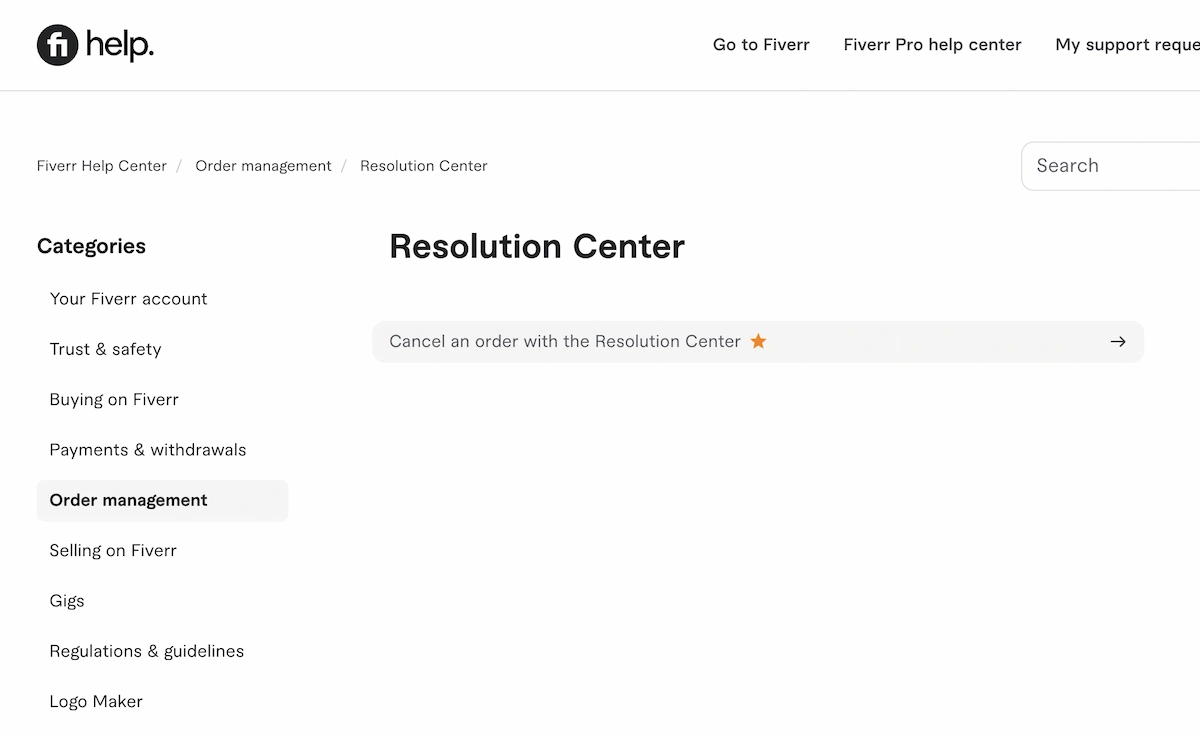
You also need to set clear expectations from the beginning.
Clearly define things like:
- The project scope
- Key deliverables
- Payment terms
- Things you won’t do
Note: This is why it’s so important to have rock-solid freelance contracts in place.
Establishing open lines of communication and maintaining regular updates can help you foster transparency and minimize misunderstandings.
If you are faced with unreasonable requests or scope creep, you need to assertively communicate your boundaries. Try to negotiate additional compensation if necessary.
And in the worst-case scenario, cut your losses with that client. It’s often just not worth the pain and stress.
Navigating These Situations
While dealing with difficult clients can be challenging, it is important that you remember your worth and the value you bring to your work. By setting clear expectations, maintaining professional boundaries, and prioritizing your mental well-being, you can navigate these situations with confidence. And ensure that your freelance writing experience remains positive and fulfilling!
There Are Pros & Cons To Freelance Writing
As with everything, there are various pros and cons to freelance writing. And some of those cons are hidden downsides that newbies often overlook.
If you’re a beginner and you want to learn more about this career path, check out my guide to the top beginner freelance writing mistakes to avoid.
Freelance Ready is reader-supported. That means some links on this website are affiliate links. If you sign up or make a purchase through these links, we may earn a commission.

